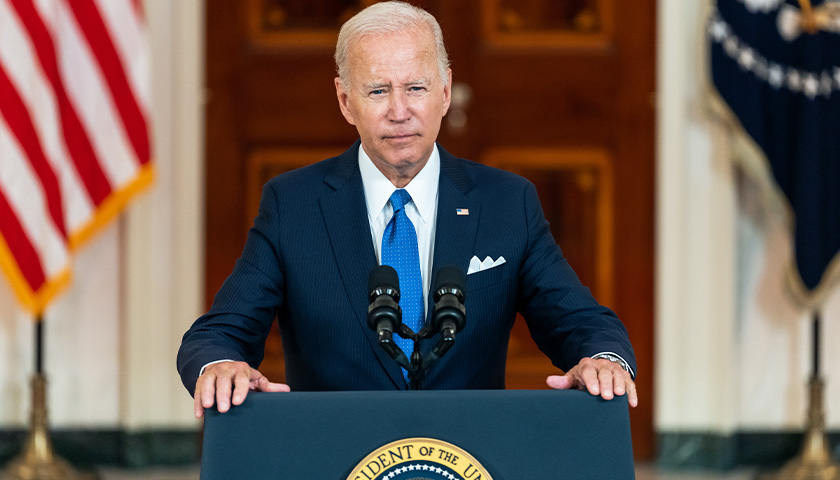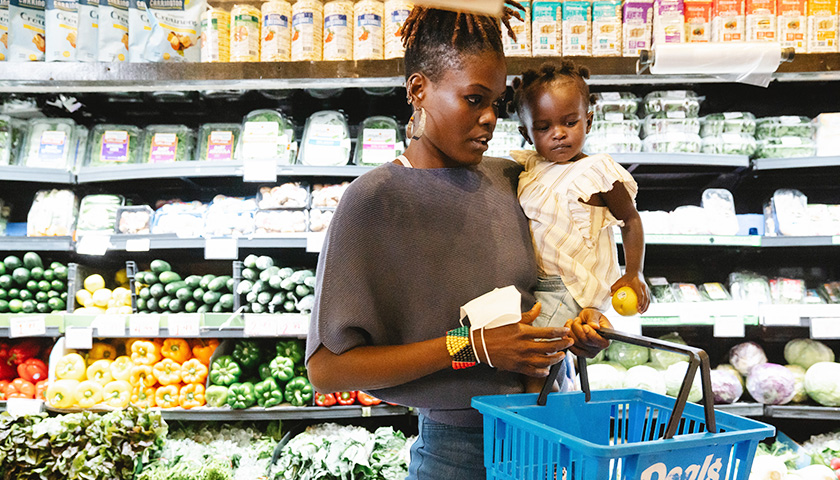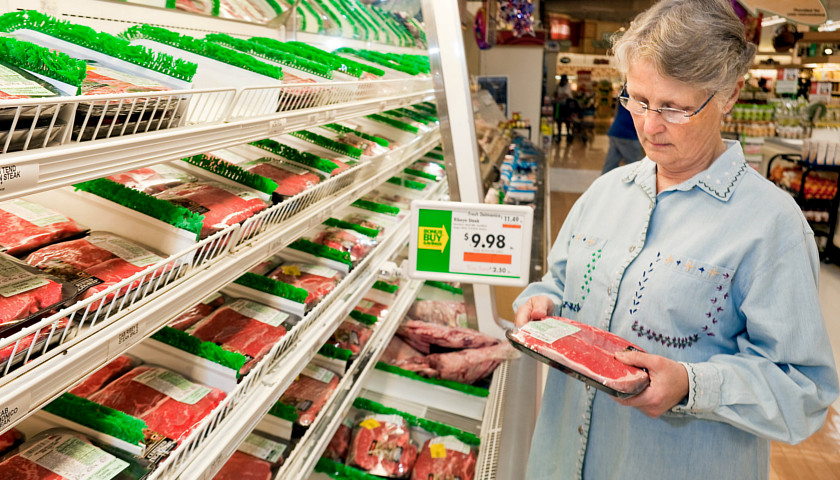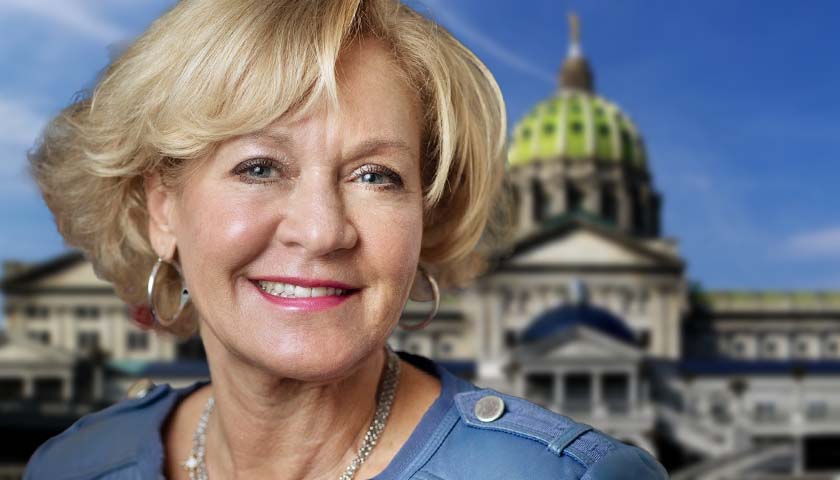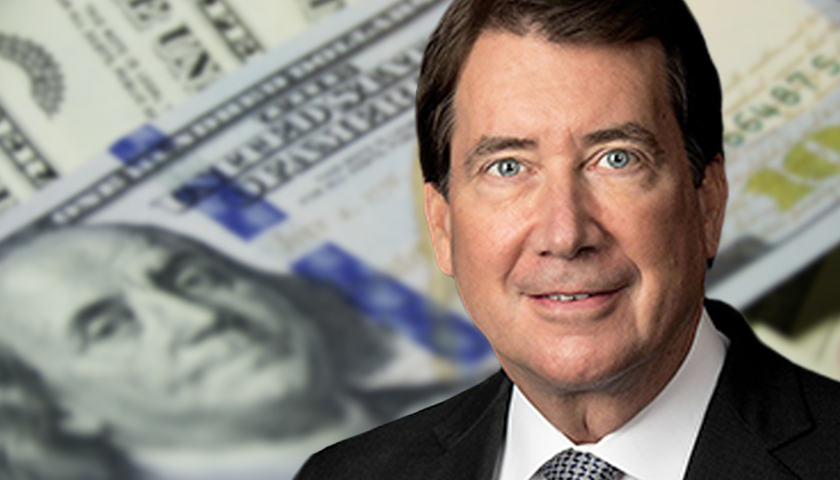Anyone still wondering why voters trust former President Trump more than President Biden on the economy should read what the White House posted on X about inflation last week: “Ahead of the holiday season, costs are down for everything from airline tickets and car rentals to toys and TVs.” Biden and his underlings continue to believe public disapproval of his disastrous economic performance can be improved with happy talk and cherry picked statistics. It assumes Americans can’t remember how much less the cost of living was when Biden was elected.
Read the full storyTag: CPI
Runaway Inflation ‘Unlikely’ to be Reeled in Under Biden Administration, Experts Say
by Will Kessler As long as President Joe Biden continues his high government spending policies, inflation is not likely to return to previously normal levels without seeing economic repercussions, according to experts who spoke to the Daily Caller News Foundation. The last time the Consumer Price Index (CPI), a measure of inflation, was below 3 percent year-over-year was in March 2021, two months after Biden took office, with the CPI last measuring at 3.7 percent for September, despite the Federal Reserve’s inflation target being just 2 percent, according to the Federal Reserve Bank of St. Louis. To return to the Fed’s target, which was common in the decade preceding Biden without difficulty or economic repercussions, the president would have to give up his high-spending policies that have been a signature of his economic policy, according to experts who spoke to the DCNF. “It is possible that inflation returns to 2 percent, but poor fiscal policy can make it much harder and more unlikely,” Jai Kedia, a research fellow in the Center for Monetary and Financial Alternatives at the Cato Institute, told the DCNF. “There’s an economic theory called the ‘fiscal theory of the price level’ and it suggests that a stable economy requires…
Read the full storyAs Food Prices Soar with No End in Sight, Americans Change Habits
Americans are changing their shopping habits because of soaring food prices. And disruptions in the international farming community have some worried about the food supply heading into 2023.
The BMO Real Financial Progress Index, a quarterly survey from BMO and Ipsos, shows that 42% of surveyed adults “are changing how they shop for groceries,” including “opting for cheaper items, avoiding brand names and buying only the essentials.”
The report found “46% are either dining out less or consciously spending less when dining out.”
Read the full storyInflation Prompts Pennsylvania Legislators to Suggest Tax Holidays
Some Pennsylvania lawmakers are proposing that the commonwealth offset some of the inflationary burden on residents by pausing certain taxes.
One bill State Senator Lisa Boscola (D-Bethlehem) is currently drafting would stop sales taxation in June and July 2022 at a time the senator says the state can afford to do so. In a memorandum seeking co-sponsors for her bill, she cited Governor Tom Wolf’s (D) recent declaration that Pennsylvania will amass a budget surplus for Fiscal Year 2021-22 of over $2 billion and a similarly large surplus for the following year. Since budget years end on June 30, the legislation is thus timed to spread the financial loss to the state over both budget cycles.
Read the full storyInflation Hits Highest Level in 39 Years
The Consumer Price Index (CPI) increased 0.9% in November, bringing the key inflation indicator’s year-over-year increase to 6.8%, the highest figure in four decades.
The CPI’s increase is the largest increase in four decades, up from October’s 6.2% according to the U.S. Bureau of Labor Statistics (BLS) report released Friday morning. Experts surveyed by CNBC projected inflation would increase 0.7% in November, translating to a 6.7% gain on a year-over-year basis.
“These are frighteningly high inflation numbers, the likes of which we haven’t seen for decades,” Allen Sinai, chief global economist and strategist at Decision Economics, Inc., told The Wall Street Journal.
Read the full storyTennessee’s U.S. Senator Bill Hagerty Sounds the Alarm on Inflation as the Consumer Price Climbs Another Three Percent
On Tuesday, Tennessee Senator Bill Hagerty (R-TN) released a statement in response to the latest Consumer Price Index (CPI) release from the Bureau of Labor Statistics (BLS), showing that consumer prices rose again in August.
Read the full storyGrassroots Pundit: What Does Governor Haslam’s Revenue Neutral Gas Tax Increase Mean to Tennessee Families?
Governor Haslam introduced his “revenue neutral” IMPROVE Act (Improving Manufacturing, Public Roads and Opportunities for a Vibrant Economy) late last month. The proposed bill focuses primarily on increasing the fuel (gas and diesel) tax to fund transportation initiatives and offsetting the increases with other tax cuts. Under the governor’s proposal, the state tax on gasoline will increase from 21 cents per gallon to 28 cents per gallon. The state tax on diesel fuel will increase from 18 cents to 30 cents per gallon. Ominously, the tax will be indexed to increase each year based on inflation. The plan proposes tax cuts of $270 million annually, while increasing revenues through taxes and fees by $278 million this year. The taxing procedure that allows government to receive the same amount of money despite changes in tax law is the definition of “revenue neutral.” This was a strategic move by the Governor to combat the obvious and predictable opposition to any tax increase given the state’s budget surplus in excess of $1 billion. But how neutral is the IMPROVE Act for Tennesseans? At least one group is trying to explain what the gas tax increase would cost the average driver. The Transportation Coalition…
Read the full story
